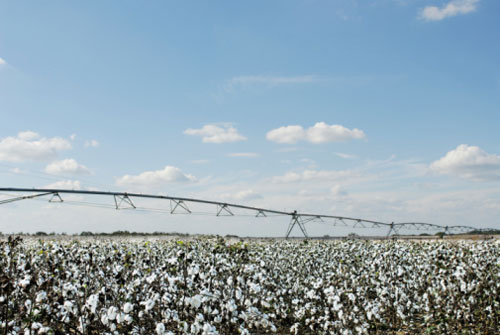Reuters
Apr 11, 2010
Lung damage in cotton workers partly reversible
Reuters
Apr 11, 2010
NEW YORK (Reuters Health) - Workers in the cotton textile industry often develop chronic coughs and other respiratory problems, but a new study suggests that their lung function typically improves after retirement.
 |
Working with cotton exposes people to dust and endotoxin, a substance produced by bacteria that can trigger inflammation in the airways. It's known that workers in the industry have increased rates of breathing problems, including chronic cough and chronic bronchitis -- persistent inflammation in the lungs that causes symptoms like breathlessness and wheezing. However, it has been unclear whether those effects are at least partly reversible.
In the new study, reported in the American Journal of Respiratory and Critical Care Medicine, researchers followed 447 Chinese men and women working in the cotton textile industry, along with 472 workers in the silk industry -- where workers are not exposed to high levels of endotoxin.
Over 25 years, the researchers periodically measured the workers' lung function using a standard test that gauges the amount of air a person can forcibly exhale in one second. They also questioned the workers about any respiratory symptoms.
Overall, the study found, cotton workers' lung function improved after retirement, particularly within the first 10 years.
What's more, their rates of certain respiratory problems declined over time. At the start of the study in 1981, 21.5 percent of cotton workers had chronic bronchitis, and a similar percentage had chronic cough. Fifteen years later, those figures were 5 percent and 2 percent, respectively.
In addition, the rate of byssinosis -- a lung disease specifically linked to on-the-job exposure to cotton dust -- declined from 8 percent to less than 2 percent.
The proportion of cotton workers reporting bouts of breathlessness increased over time -- from 15 percent to 20 percent. But that rate also increased among silk workers, from 4 percent to 14 percent, and such effects can be related to aging.
Overall, the findings suggest that the lung damage from working in the cotton industry is partially reversible, according to the researchers, led by Dr. Jing Shi of the University of Science and Technology in Beijing. "Partially," they note, because, on average, cotton workers' lung function did not reach that of silk workers after retirement.
Shi's team also found that cotton workers who smoked suffered greater effects on lung function than non-smokers during their working years. But they also improved more rapidly than non-smokers did after retirement.
As for the silk workers in the study, their lung function also generally improved after retirement.
Similarly, their rates of chronic cough and chronic bronchitis, while always lower than those of cotton workers, also dipped (from just under 8 percent to 6 percent for bronchitis, and from 7 percent to 3 percent for chronic cough).
The reason for that, Shi's team writes, is not entirely clear, as silk workers were not exposed to cotton dust or higher-than-normal endotoxin levels. Some other, "unmeasured exposure," according to the researchers, may have affected silk workers' lung health.
SOURCE: American Journal of Respiratory and Critical Care Medicine, online March 25, 2010.
© Thomson Reuters 2024 All rights reserved.

























